Wild Clay Process
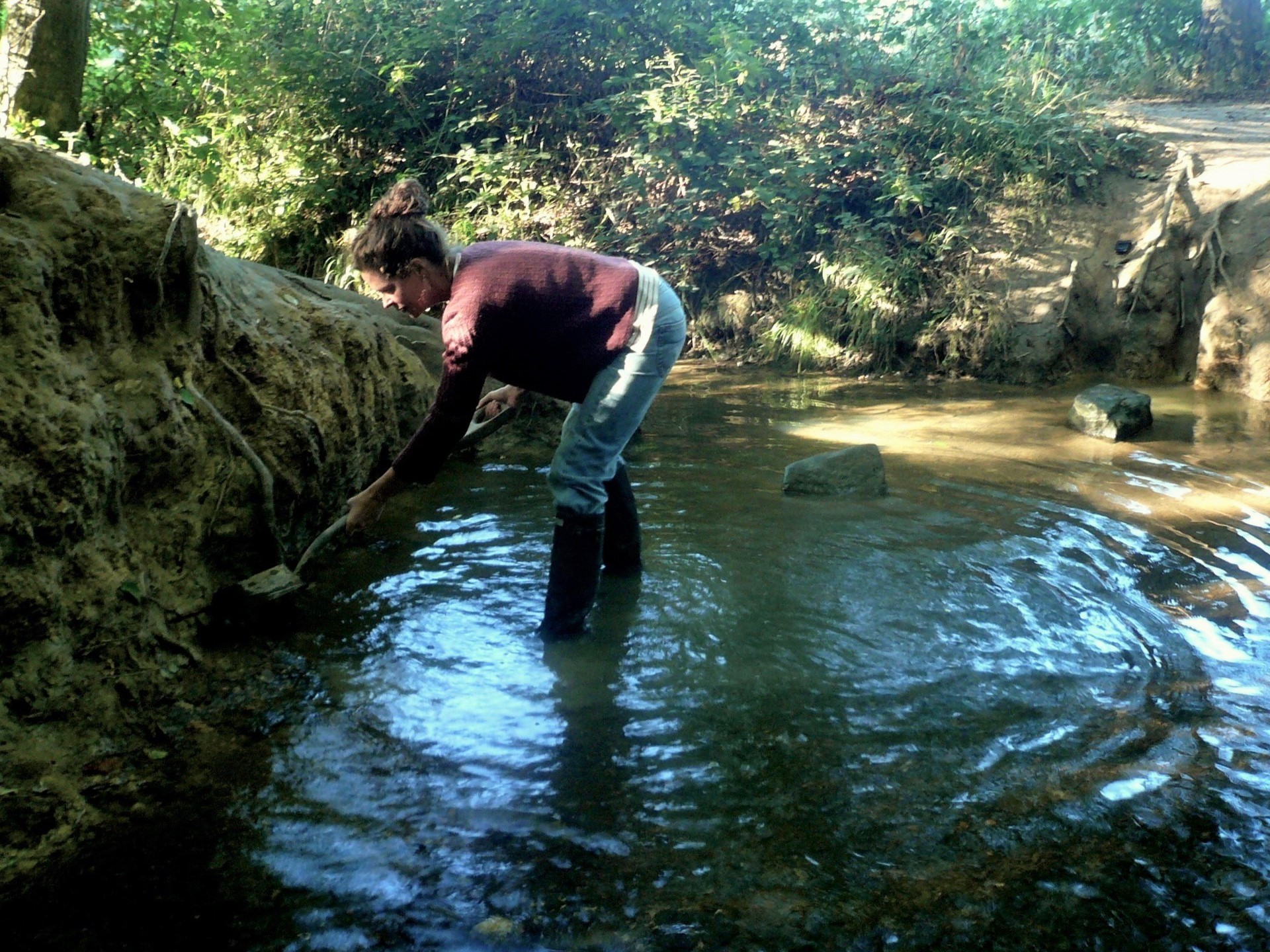
I dig wild clay near my home in Sussex, in the woods. It’s Weald Clay here, an iron rich earthenware. This area was known for its medieval potteries and also brick and tile making (still taking place in some areas today).
Taking small amounts of the woodland clay at a time, with minimal impact on the land. I always make offerings before digging: a gesture of reciprocity.
What does it mean to have an intimate connection to the plants, seasons and land where we find ourselves? There is an embodied process in harvesting and using foraged materials. A rhythm and relationship inherent in the act of making. It’s a counterpoint to the pull of our increasingly digitalised and disconnected lifestyles.
I work with 100% wild clay (no commercial clay added) as a way of keeping close connection to place. Wild clay has a rich texture when it’s fired, giving a natural vibrancy. I leave some surface marks from the making process, traces of the maker’s hands.
Pots are fired in the same woods either in an open fire or in a clamp kiln, leaving no trace when I’m finished, in keeping with the pre-Roman practices of these lands.
Each piece unique, each connected directly to the land. Echoes of ancient processes.
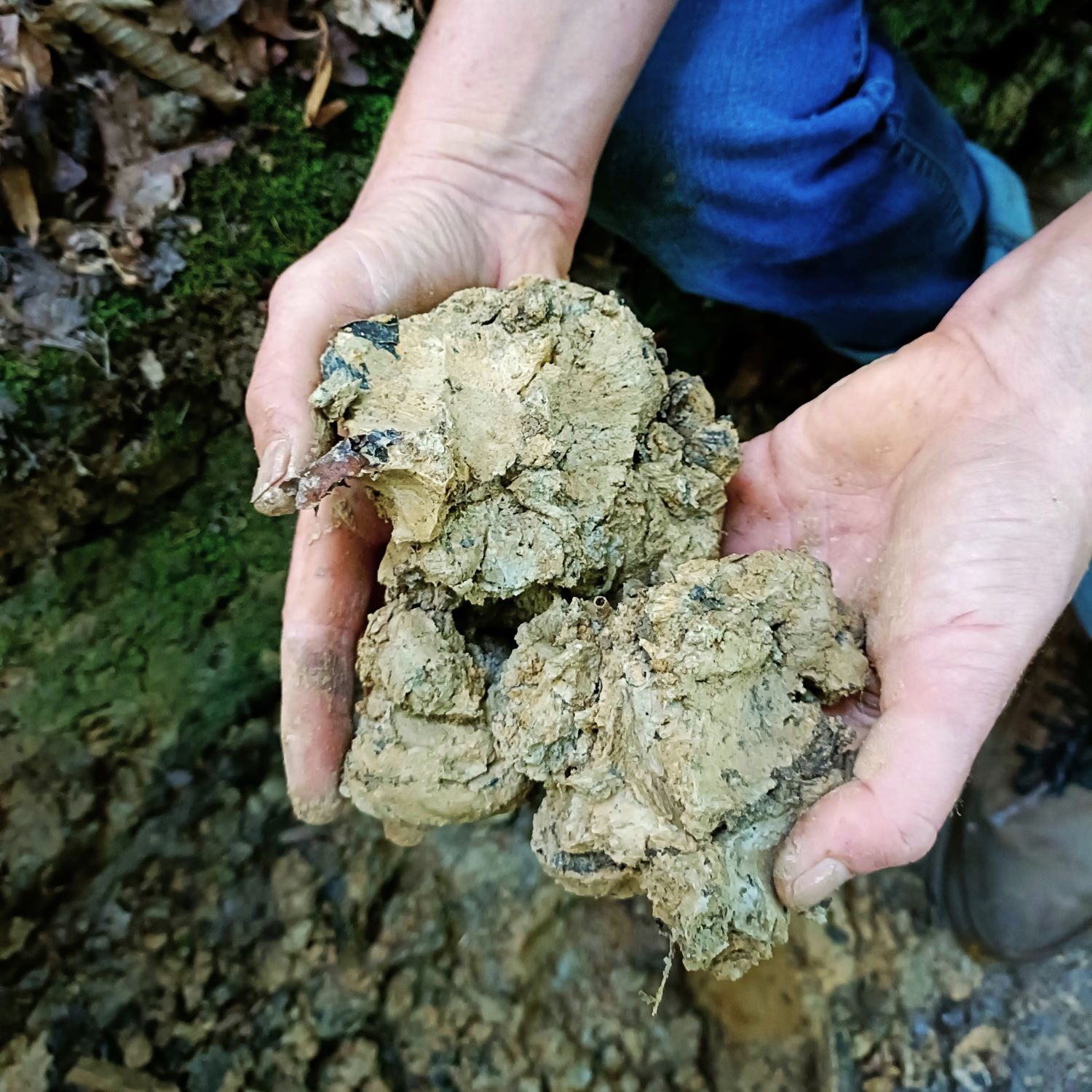
Iron rich clay dug from the Sussex woods.
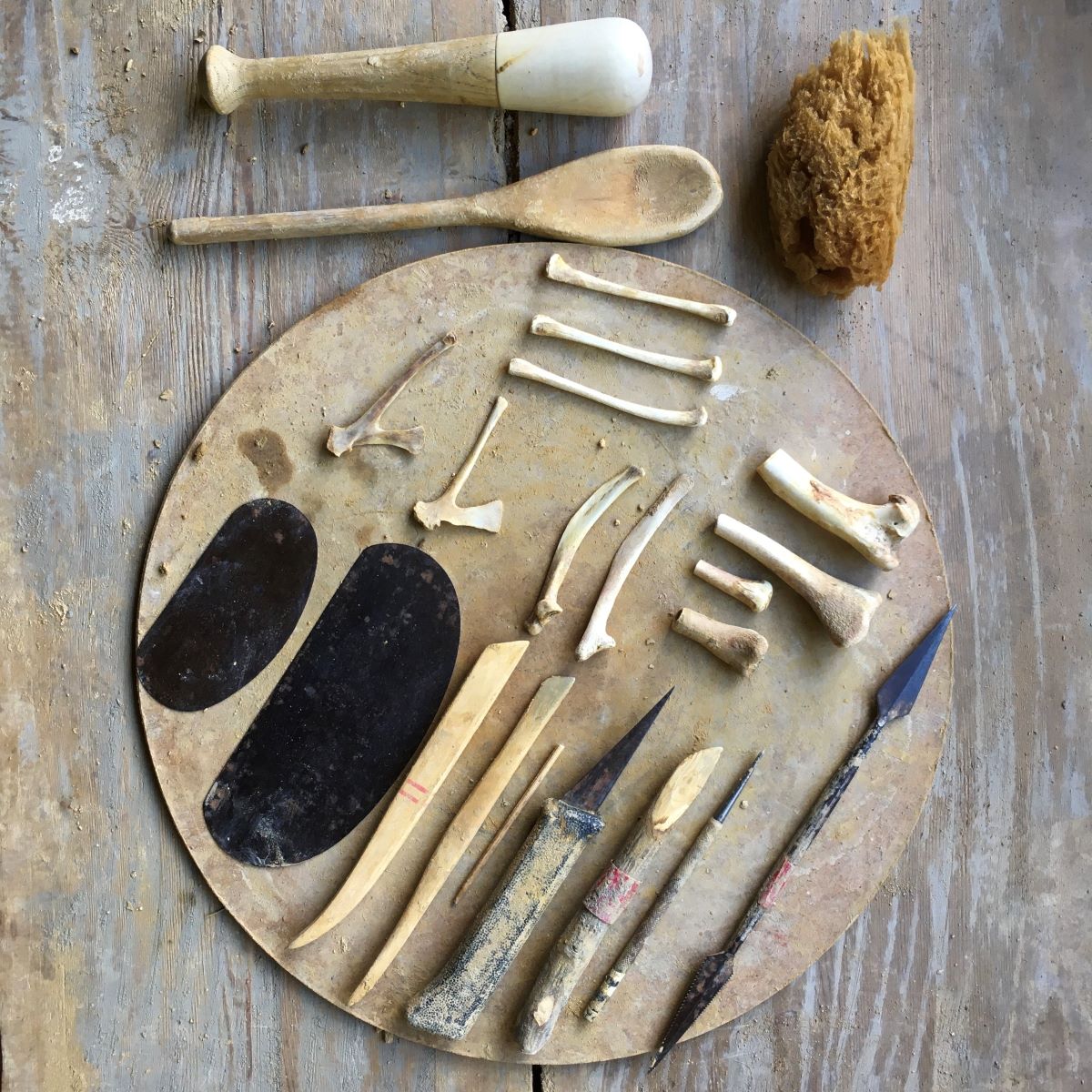
Bone & wood tools for hand-building the clay forms.
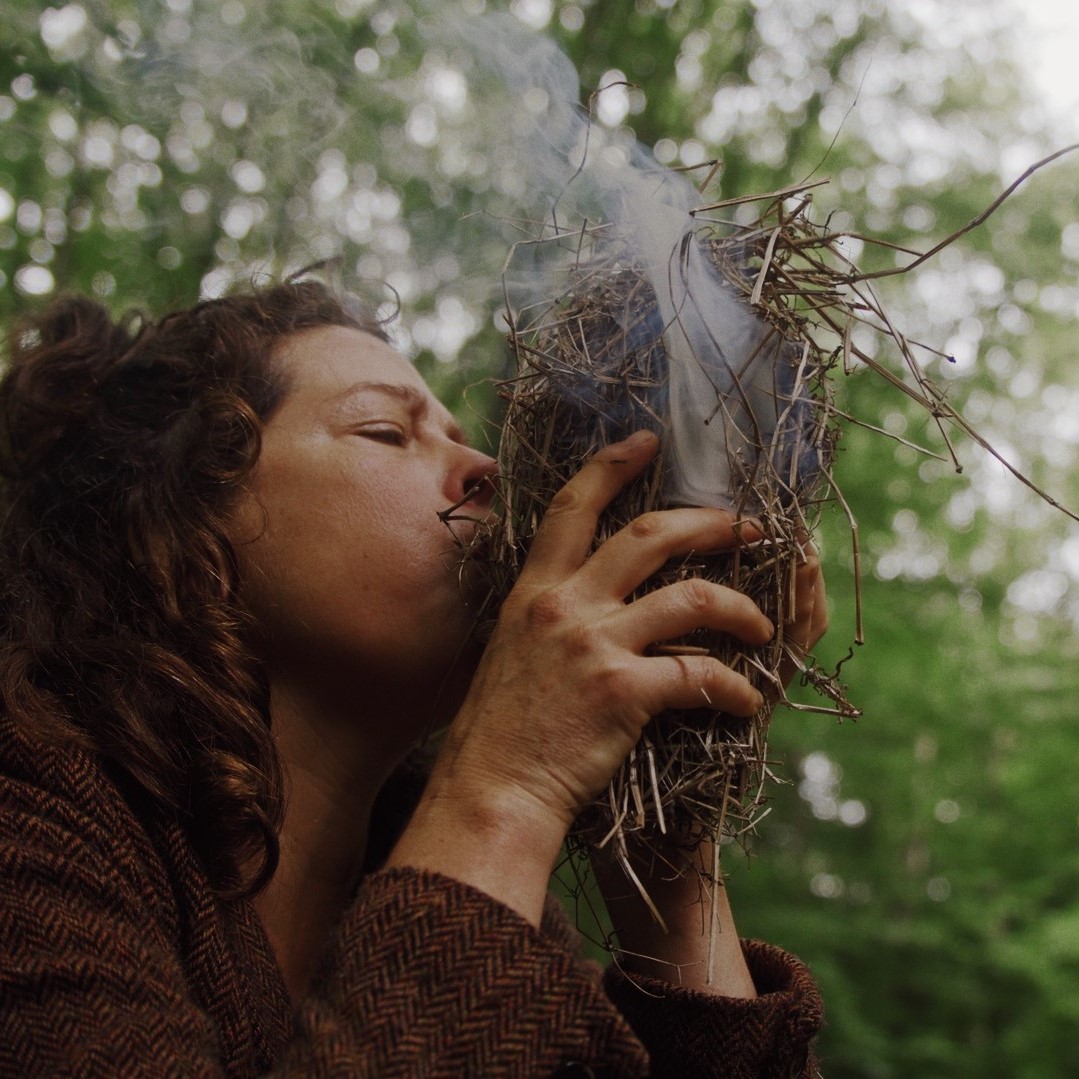
Firings are done in the woods, making a tiny spark with flint & steel, catching it on wild clematis bark. Coaxing the fragile ember into a larger blaze, feeding it with local oak wood.
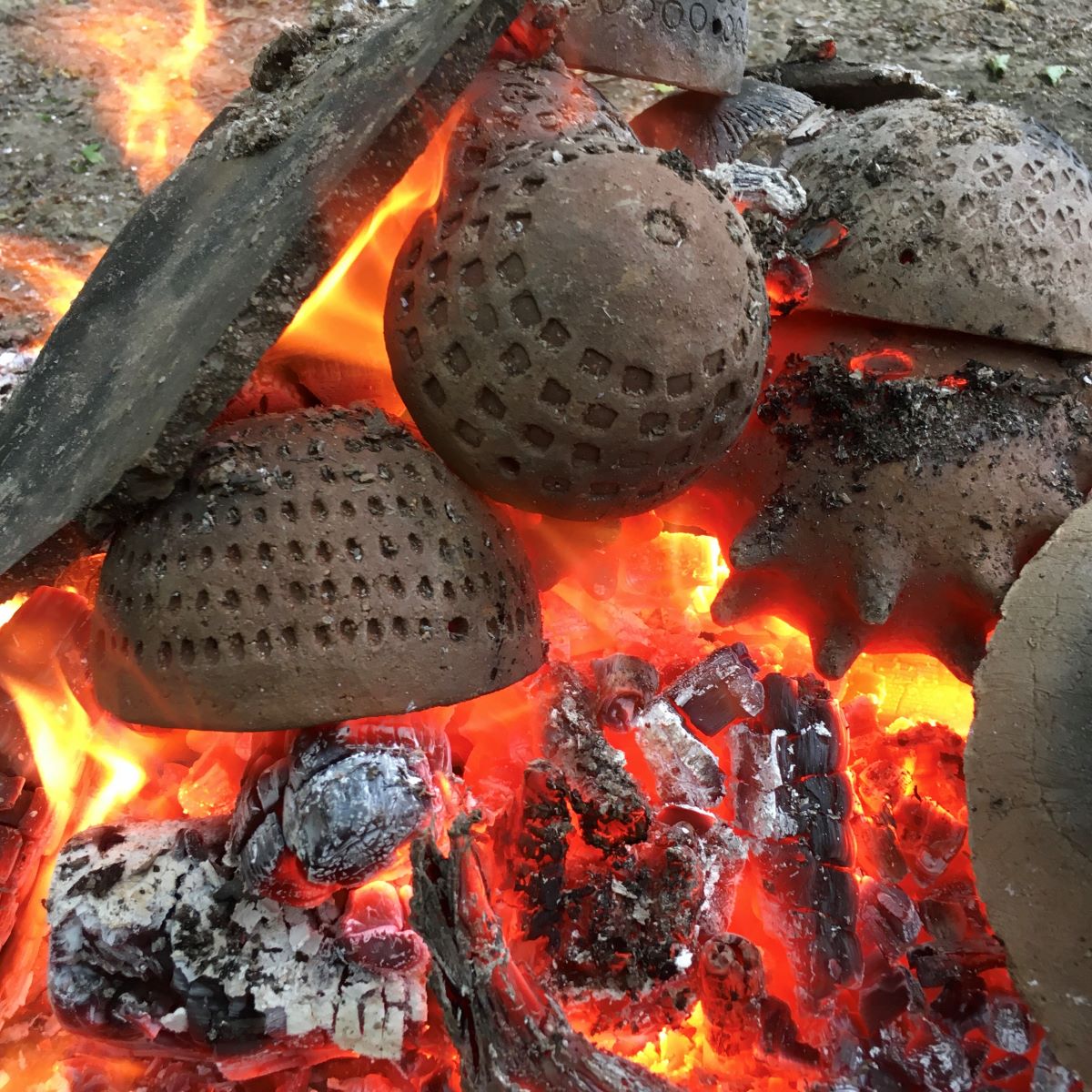
Open firing: short and fast, the original, ancient way. It’s alchemy made visible as the clay, red hot, transmutes into ceramic.
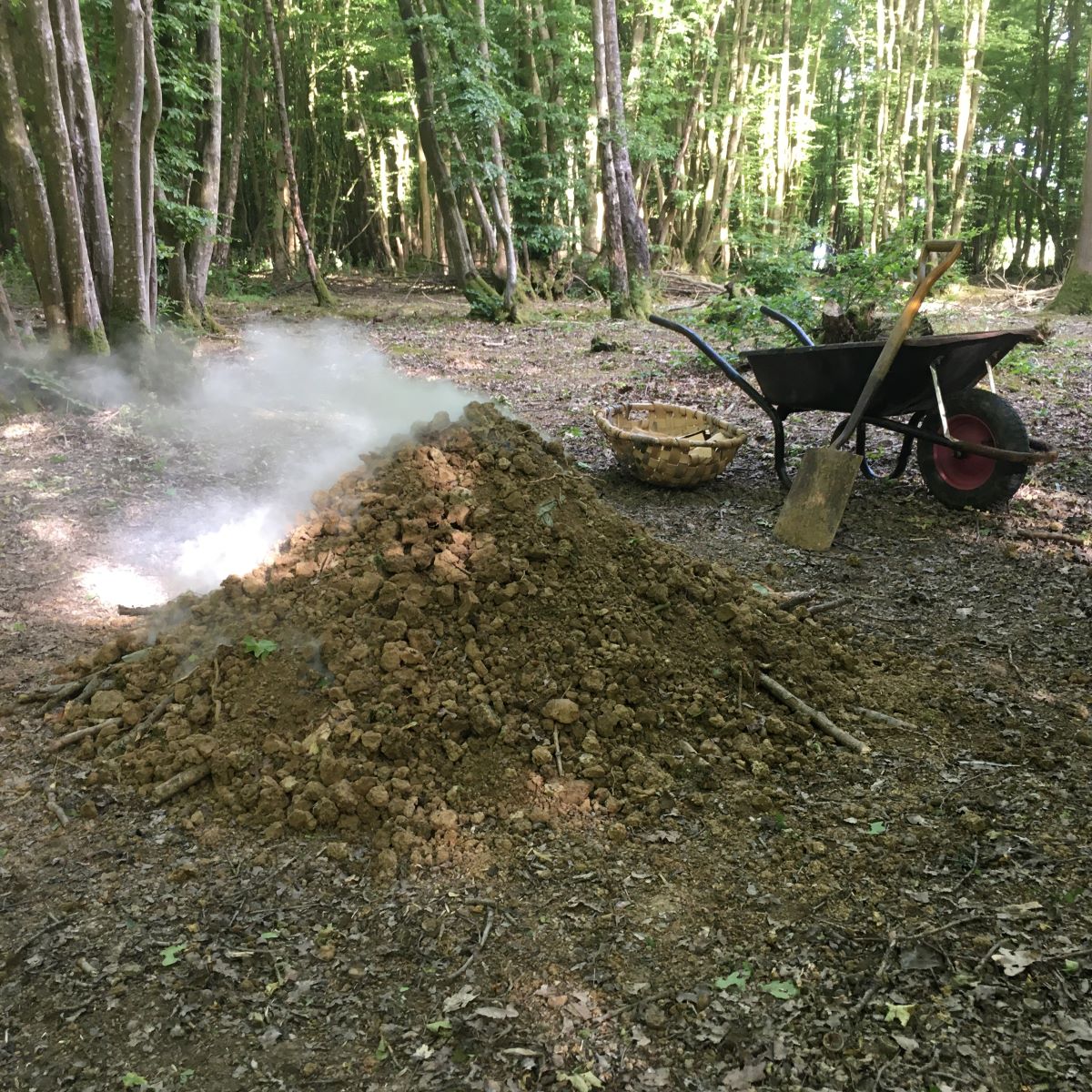
Clamp kiln: temporary structure of wood and earth to insulate the firing. It burns for a day and a night.
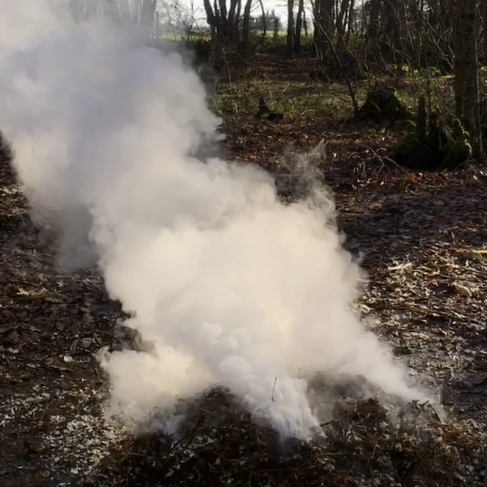
Reduction firing: firing with reduced oxygen to produce blackened pieces.
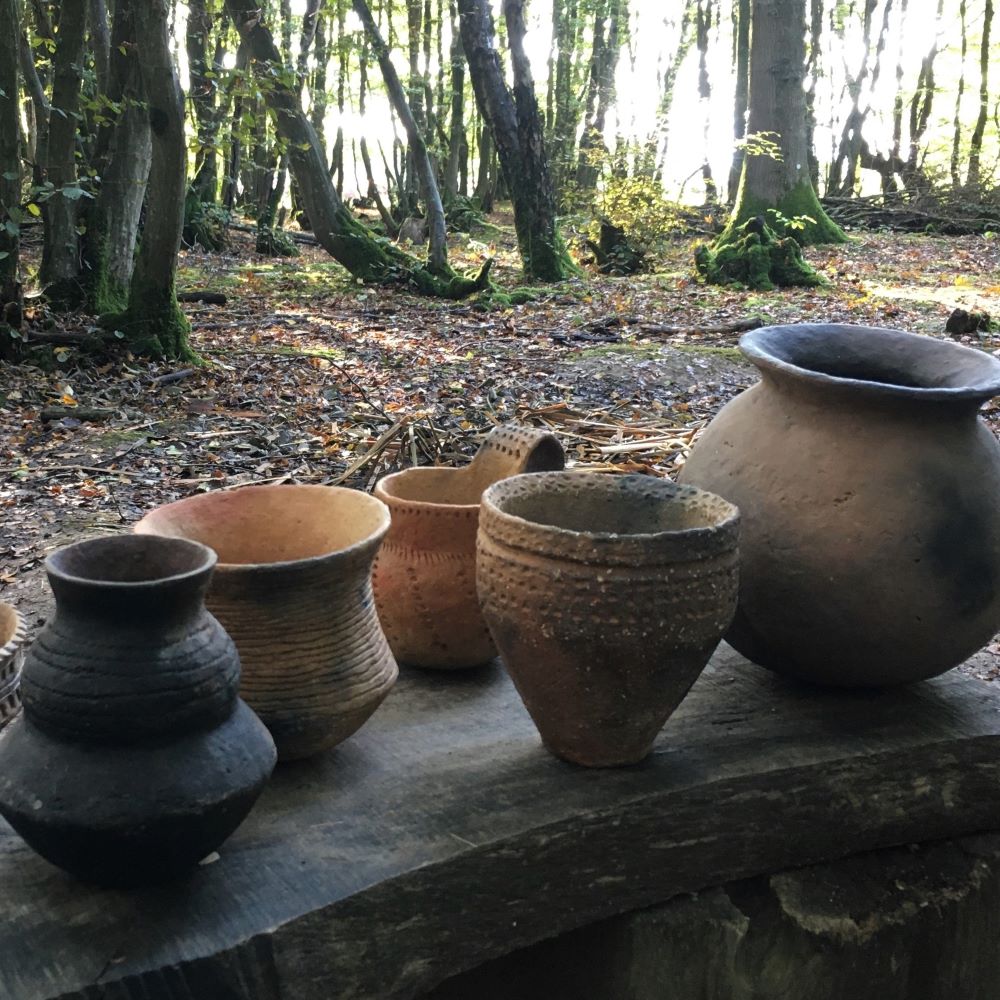
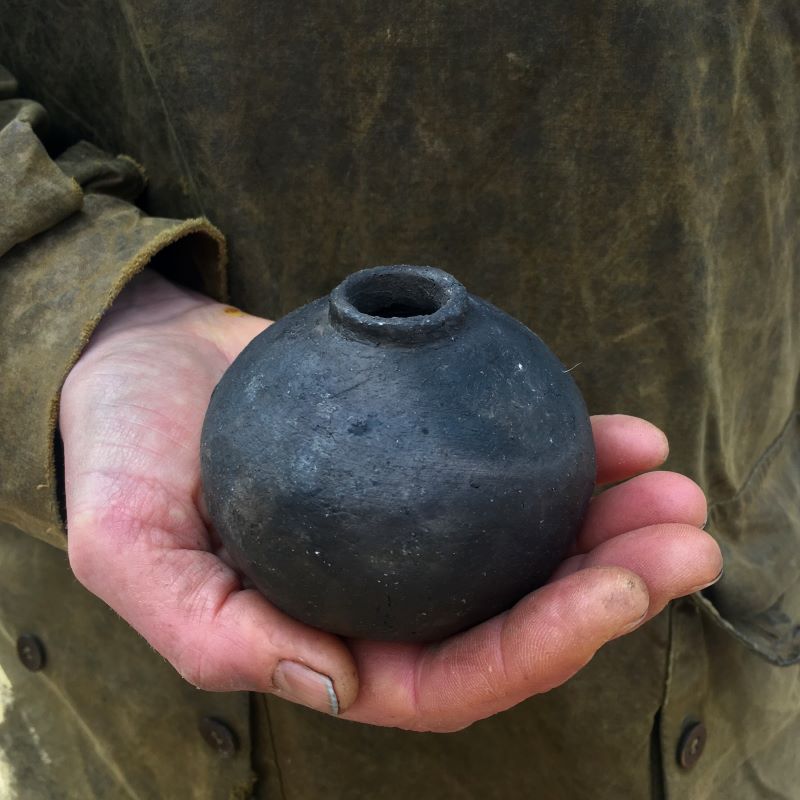
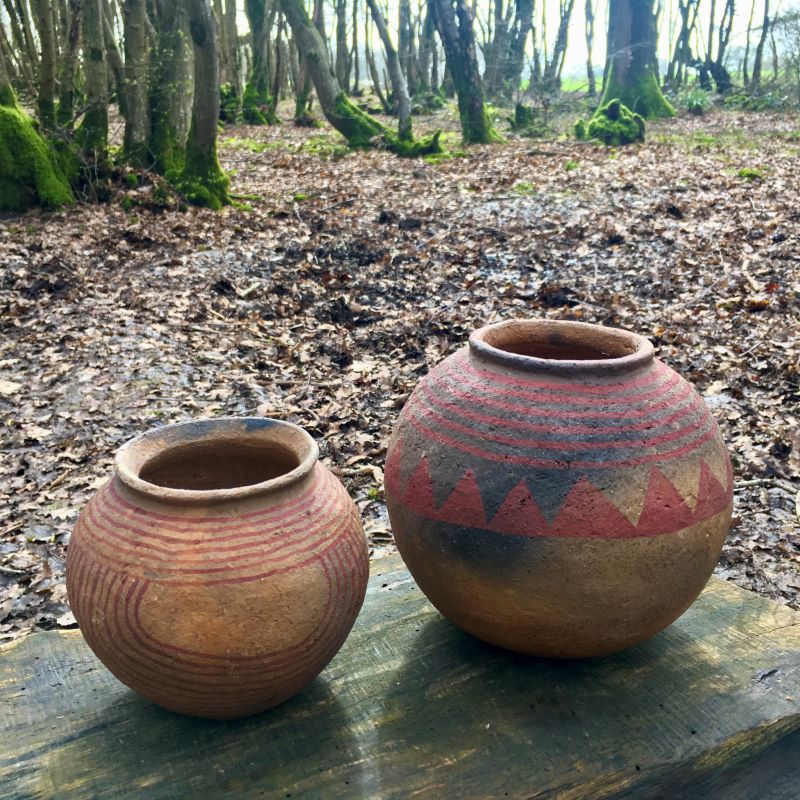
Textures of wild clay, open-fired and clamp kiln-fired. Smoke clouds imprinted on the pot surface from the fire; every pot is unpredictable, every firing a leap of faith.
Know the ways of the ones who take care of you. Introduce yourself. Be accountable as the one who comes asking for life. Ask permission before taking. Abide by the answer. Give thanks for what you have been given. Give a gift, in reciprocity, for what you have taken.
Robin Wall-Kimmerer from ‘Braiding Sweetgrass’
.